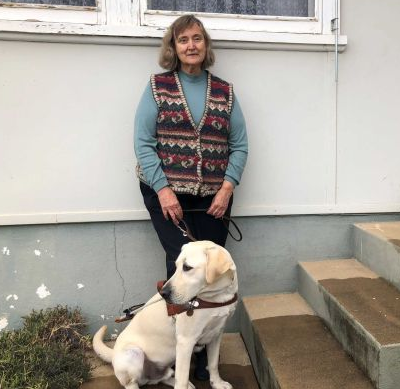Wendy Arentz from Tumut in the NSW Riverina was born with central vision loss and hearing problems, but her limited sight deteriorated in her 20s.
Mrs Arentz was referred to the NDIS in July 2017 and since then she has had nothing but positive experiences. She now has a guide dog, Amos, and equipment that has allowed her to use a computer.
But her success with the NDIS was dependent on her ability to explain the difference the assistance would make to her life.
“I can see a problem for people who are relying on a local area person, or somebody they may not get on with, or somebody that’s doing it for them but can’t actually sit in their shoes,” she said.
Mrs Arentz said she has been determined to advocate for herself and make the scheme work for her, frequently writing to the NDIS committee about her personal experiences.
“Certainly in the advocacy sector, we see that there is a hole in the current system,” chief executive of Disability Advocacy Network Australia, Mary Mallett said.
“It’s a complex system for people to understand and navigate and there aren’t enough people independent from the system to help people to work their way through it.”
Out of more than 277,000 people currently on the NDIS, Ms Mallett said around 60 per cent have a cognitive impairment.
“These people are mainly dependant on family, friends and other people — like their support workers and service providers — to speak up for them,” she said.
Ms Mallett argued that access to independent advocacy was “crucial” to the success of the NDIS.
“If you have a vested interest in the person, you’re going to make money out of helping them with their plan, then that’s really inappropriate,” she said.
“But it’s not as simple as counting up the number of complaints and then assuming that everyone else is happy.
“There are lots of people who are in the NDIS who really don’t understand what they’ve got or know that they could ask for anything better or different.”

